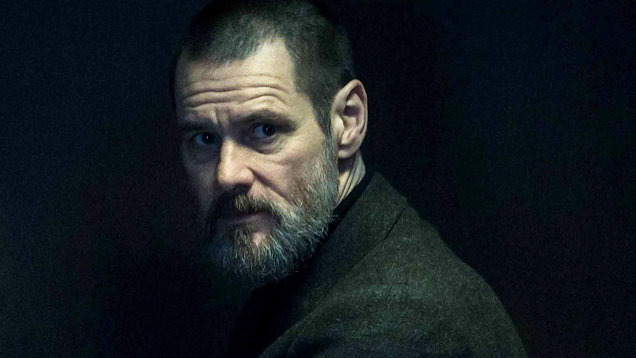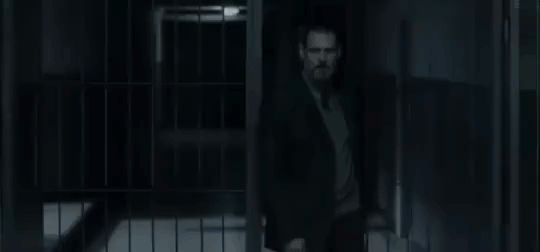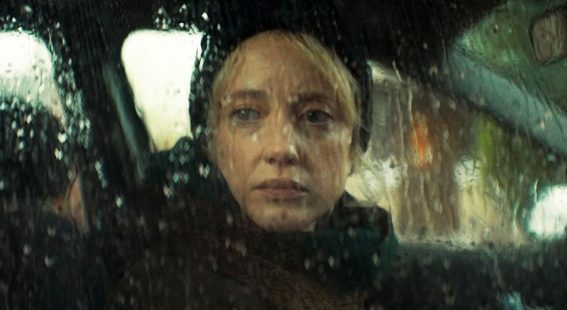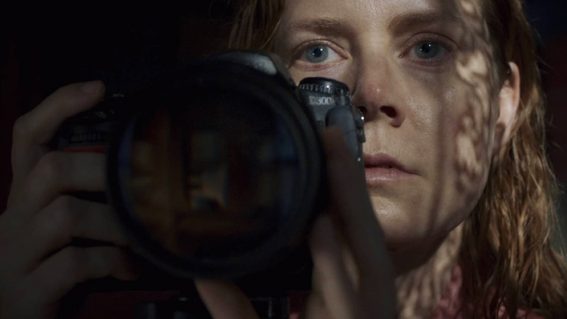In defence of the critically savaged Jim Carrey thriller Dark Crimes

Does Jim Carrey’s most recent movie really deserve a zero percent Rotten Tomatoes score? Critic Luke Buckmaster comes to its defence.
The Jim Carrey-led mystery/thriller Dark Crimes arrived in Australia without fanfare, drifting through the bowels of distribution we call ‘straight to DVD and online’. On its Google Play rental page my eyes couldn’t help but notice the number “0” positioned next to the familiar icon of a splattered green vegetable. This led me to a Rotten Tomatoes page listing 34 reviews (a small but not insignificant sample) with none of them positive. Could Dark Crimes really be this bad? Does it seriously deserve a zero percent approval rating?
The short answer is no. The long answer entails discussion of darkly beautiful, damp-looking visual compositions far more evocative than the aesthetic of most thrillers – or even most movies. It also involves discussion of the director Alexandros Avranas’ crafting of a philosophically challenging film. It begins in the vein of a sick, seedy thriller, transitions into a story combining gruesome reality with self-reflexive art, and culminates (no spoilers) with an ending that, in its shocking combination of personal reveal and narrative context-shifting, is strikingly and cunningly Poe-like, saying goodbye to the audience with one final punch in the gut.
Carrey’s excellent pathos-filled performance as the disgraced Polish detective Tadek radiates an intense sorrow, as if he’s lugging around a heart made of lead. Despite being known for over-the-top performances Carrey’s acting in this instance is a careful exhibition of ‘’less is more’. He has a funereal visage and cuts a striking presence – with his cropped hair and light grey beard, heavy half circles beneath his eyes and the pursed space above his nose.
Tadek takes on a murder case involving an S&M club. He is convinced the killer is Kozlov (Marton Csokas), a pretentious and creepy author who wrote a novel containing a murder that unfolds in similar circumstances. Kozlov uses a press conference to cryptically ruminate on the subject of truth and reality. Later, miffed by Tadek’s treatment of him, he sledges the detective to the media using words straight out of his book, which Tadek has studied fastidiously. Is he screwing with the detective, or is the film screwing with us? Or both?

Ordinarily I avoid reading reviews before formulating my own. For Dark Crimes, compelled by the terrible score on Rotten Tomatoes – which seemed rather out of sync with my opinion of this film – I made an exception and read a stack. What surprised me was that a lot of the time they actually weren’t all that out of sync at all. Most of these reviews, while generally negative, put forward specific points of praise.
According to various reviews listed on Rotten Tomatoes, “Carrey commits one hundred and ten percent” and “breaks from his usual onscreen persona” to deliver a “quietly exacting, uncharacteristic performance.” The result is a “well-made” thriller that “never deviates from its hushed, deliberate, anticipatory gaze” and was “shot and edited beautifully by Michal Englert and Agnieszka Glinska” in a style “clearly taking influence from Nordic noir TV.”
I agree with all of that. Quite a lot of praise for a film with a zero percent approval rating, right? So the $64,000 question is: why, in all these examples of positive observations, did none of lead to a single overall positive review?
I suspect it partly comes down to the emotional and intellectual queasiness Avranas evokes. The film leaves us with a terrible feeling about the world we live in. That the narratives of our lives are incomplete; that justice – like truth – is subjective; that a longing for simple binary narratives pushes people to make assumptions about the universe around us that are not necessarily true and sometimes horribly wrong. It is a confronting film because it reflects Kozlov’s nihilism.
I also believe people (including cinephiles and critics) under-appreciate film as a predominantly visual art form. The rise of a spoiler-averse culture coupled with – and in part caused by – the proliferation of blockbuster serials (such as Game of Thrones and the Marvel Cinematic Universe) has emphasised story over technique, and content over form. Franchise film such as Avengers: Infinity War regard the cinema as a form of television, shirking cinematic style to mollycoddle audiences with known elements – tapping into the comfortable feeling one receives from returning to characters and settings with which they are familiar. Others, like Aquaman, crank the bling factor to 11 in the condescending belief that “more” equals “better” and “spectacle” equals “gratification.”
One of the best assets any film can have is not just “good” cinematography, but cinematography that reflects thematic ideas – finding ways to visualise elements of narrative and subtext. That is no easy task, but Avranas and cinematographer Michal Englert pull it off with audacity and elegance in Dark Crimes. The film’s visual chutzpah fuses with the story’s disquieting ideas all the way till the end – culminating with a final shot that communicates a last minute (last second) revelation in an entirely visual way. It’s a great touch and a final, unsubtle reminder that, whatever the Rotten Tomatoes community might like to say about it, this is the work of a director very much in control of his elements.


















